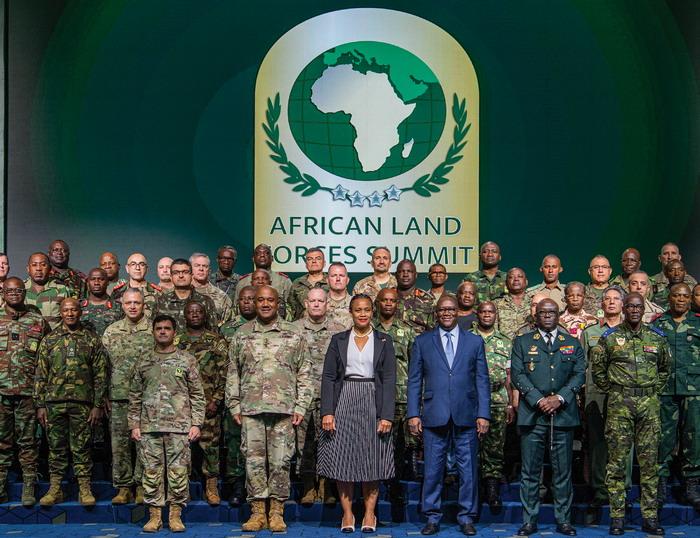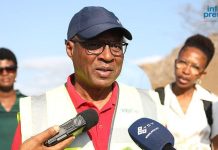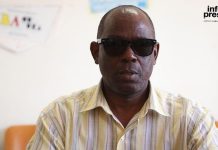Africa-Press – Cape verde. To address drivers of instability in Africa, prevailing regional threats, and solutions to Silafi-jihadists on the continent of Africa, Africa’s defence force chiefs met in West Africa last week where the United States supported the annual four-day Africa Land Forces Summit (ALFS).
The Ivorian government and armed forces were applauded by US Army Southern European Task Force, Africa (SETAF-AF), US Army Major General Todd Wasmund for co-hosting the now concluded 11th conference, held between 8 and 12 May in Abidjan, Côte d’Ivoire.
Troubling direction on terrorism has persisted in recent years, and available data supports the pervasive threat. The world suffered “10 172 terrorism incidents in 2020, a sum surpassing those in 2019,” (29 389 fatalities), according to the Global Terrorism Trends and Analysis Centre (GTTAC).Al-Shabaab ranks 3rd in the world, behind the Taliban and the Islamic State of Iraq and Syria (ISIS), for laying claim to their terrorist incidents in 2020, GTTAC’s evidence reveals. Globally, out of all terrorist incidents, “86.5 percent of these—or more than six of every seven attacks—were concentrated in three geographic regions: Western Asia, Southern Asia, and Sub-Sahaan Africa.”
Four African countries—the Democratic Republic of the Congo, Somalia, Nigeria, and Mali—rank in the top 10 countries with the largest volume of terrorist incidents in 2020.
Building the capacity of African militaries has been one approach to countering terrorism. Between 2002 and 2019, various types of military training initiatives and programmes, provided by the US Government, benefited some countries, for example, at least 3 326 DRC forces and several thousand on Nigerian forces, were beneficiaries of training.
All US measures are aligned with the recently launched US National Defence Strategy. Wasmund emphasized that America’s approach in Africa has now been recalibrated to focus on a “partner-led and US-enabled” approach. It is conferences like the ALFS that help senior land force’s chiefs share their insights and seek solutions.
A slate of academics, non-governmental and military experts were speakers at this year’s ALFS. Giving separate presentations on the drivers of instability in Africa were Dr Jean-Jacques Konadjé, Chief of Staff of the Grand Chancellery, Côte d’Ivoire; Robert Scott, Deputy Assistant Secretary in the US Department of State’s Bureau of African Affairs; and Joseph Boinett, Deputy National Security Advisor to the President of the Republic of Kenya.
Separate presentations were given by Mvemba Phezo Dizolele, Director and Senior Fellow, Africa Program, Center for Strategic and International Studies (CSIS), who spoke on Peacekeeping Operations in Africa; Dr Geoffrey Jackson, Professor, Department of Humanities, Mount Royal University, who presented on Counter-Violent Extremist Organizations (VEO): Best Practices in Africa. On the topic of Command teams were: Major General Michael J. Turley, who is the Adjutant General at the Utah National Guard; Colonel Grant Fawcett, Commander, 2nd Security Force Assistance Brigade; and Colonel Theophilus A Dana Jr, Commander, 23rd Infantry Brigade, Armed Forces of Liberia, to name just a few.
In 2021, the US Army organized a virtual ALFS due to the global COVID-19 pandemic. ALFS was launched on 10 May 2010. The hosting country is on a rotational basis so “land force commanders can showcase their capabilities and their culture,” said Wasmund, and announced that, “the Zambian Defence Forces will host next year’s summit. [Zambia’s] Lieutenant General Alibuzwi has brought his planning team here to observe this year’s event.”
For More News And Analysis About Cape verde Follow Africa-Press






